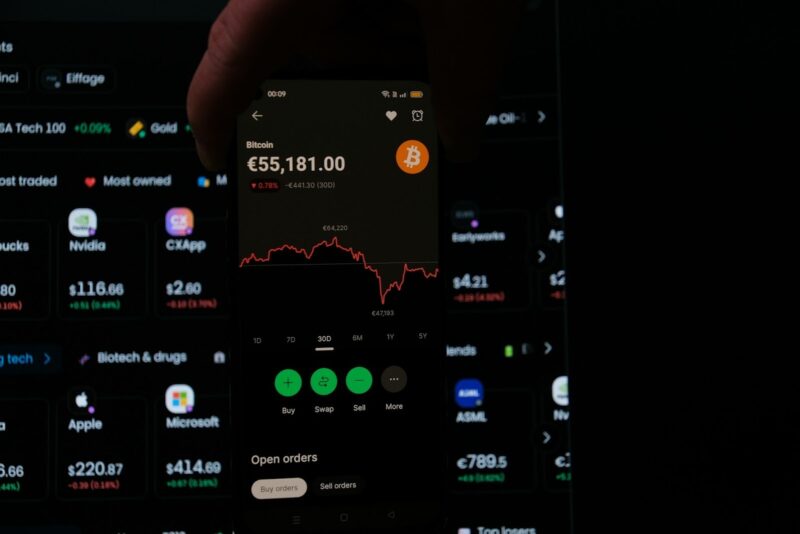Table of Contents
ToggleThe way we handle money is evolving rapidly. With the advent of digital technologies, traditional cash payments are increasingly giving way to digital transactions. From shopping online to using contactless payments at physical stores, the convenience of digital payments is undeniable. But will digital payments completely take over cash in the future? Let’s explore this fascinating transition.
The Rise of Digital Payments
Over the past decade, digital payments have surged in popularity. This shift is driven by several factors, including advancements in technology, the proliferation of smartphones, and the growing preference for convenient, fast, and secure transactions. Online platforms and e-commerce have particularly benefited from this trend, making it easier than ever to purchase goods and services without physical money. For instance, even industries like online gambling have embraced digital payments, making transactions seamless for users. A notable example is SpinBit casino, which offers a variety of digital payment options to enhance user experience.
The Advantages of Digital Payments
Digital payments offer numerous advantages over traditional cash transactions:
Convenience and Speed
Digital payments are incredibly convenient. You can pay bills, transfer money, and make purchases anytime, anywhere, without the need to carry physical cash. Transactions are processed almost instantly, saving time for both consumers and businesses.
Security
Digital payments come with robust security features. Encryption, two-factor authentication, and biometric verification help protect users from fraud and theft. Moreover, digital transactions leave a traceable record, making it easier to monitor and track spending.
Accessibility
Digital payments are accessible to a broader audience, including those who do not have access to traditional banking services. Mobile money services and digital wallets provide financial inclusion for the unbanked population, especially in developing countries.
The Decline of Cash
As digital payments continue to rise, the use of cash is declining. Several countries are witnessing a reduction in cash usage, with some even moving towards becoming cashless societies.
In Sweden, for example, cash transactions make up less than 10% of all payments. Businesses are increasingly encouraging digital payments, and some even refuse to accept cash altogether.
Challenges and Concerns
Despite the benefits, there are challenges and concerns associated with the shift towards digital payments:
Digital Divide
The digital divide remains a significant issue. Not everyone has access to the internet or smartphones, which are essential for digital payments. This divide can exacerbate social inequalities, leaving certain populations at a disadvantage.
Privacy Concerns
Digital transactions generate vast amounts of data, raising concerns about privacy and data security. Users need assurance that their financial information is protected and that their privacy is respected.
Cybersecurity Threats
The rise in digital payments also brings increased cybersecurity threats. Hackers and cybercriminals continuously develop new methods to breach security systems, posing risks to users and financial institutions.
The Role of Governments and Financial Institutions
Governments and financial institutions play a crucial role in the transition to digital payments. They must ensure that the necessary infrastructure is in place, promote digital literacy, and implement regulations to protect consumers.
Initiatives such as India’s Unified Payments Interface (UPI) and China’s mobile payment ecosystem exemplify successful government-led efforts to foster digital payments.
The Future Outlook
While it’s unlikely that cash will disappear entirely in the near future, digital payments are set to dominate the financial landscape. The benefits of digital transactions are compelling, and as technology continues to advance, digital payments will become even more integrated into our daily lives.
Emerging technologies like blockchain and cryptocurrencies further highlight the potential of digital payments. These technologies promise to revolutionize the financial sector by offering decentralized, secure, and transparent transactions.
Conclusion
The future of cash is uncertain, but the trend towards digital payments is clear. As consumers and businesses alike embrace the convenience, security, and accessibility of digital transactions, cash usage will continue to decline. However, for a truly inclusive and secure digital payment ecosystem, addressing the digital divide, privacy concerns, and cybersecurity threats is essential. With ongoing advancements and collaborative efforts from governments, financial institutions, and tech companies, the future of payments looks decidedly digital.
Digital payments are not just a trend but a significant shift in how we handle money. The convenience and security they offer make them a preferred choice for many. Industries across the board, including online gambling sites like SpinBit casino, are adapting to this change, ensuring that users can enjoy seamless and secure transactions. The transition to digital payments is inevitable, and embracing it will pave the way for a more efficient and inclusive financial future.







